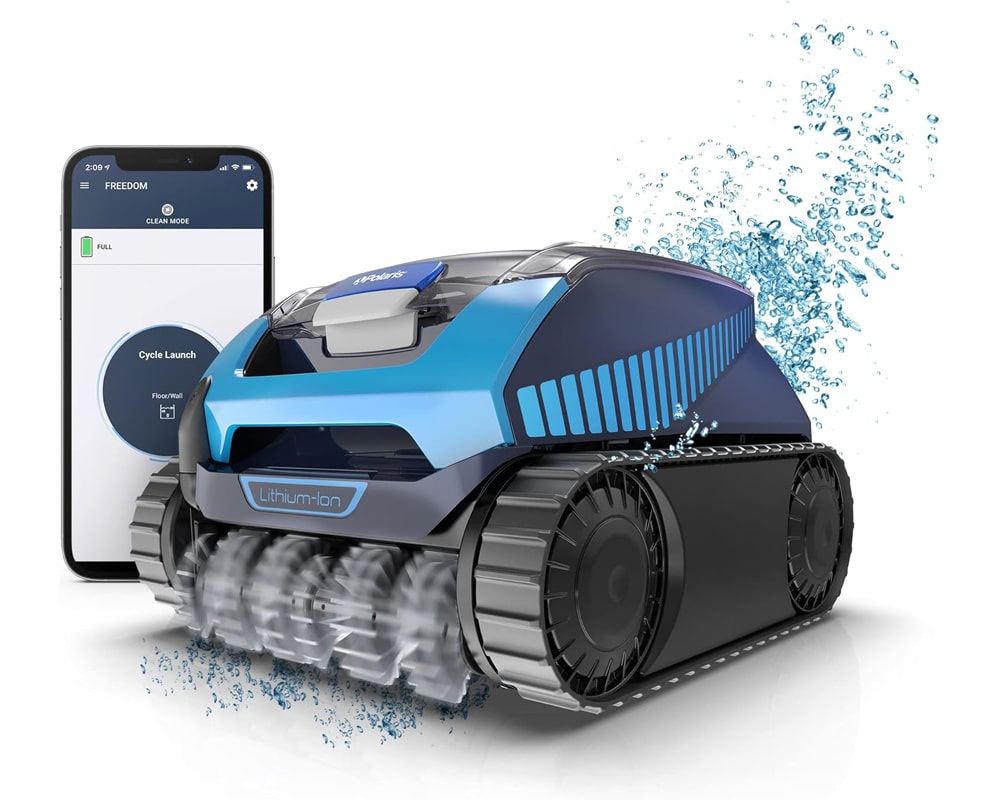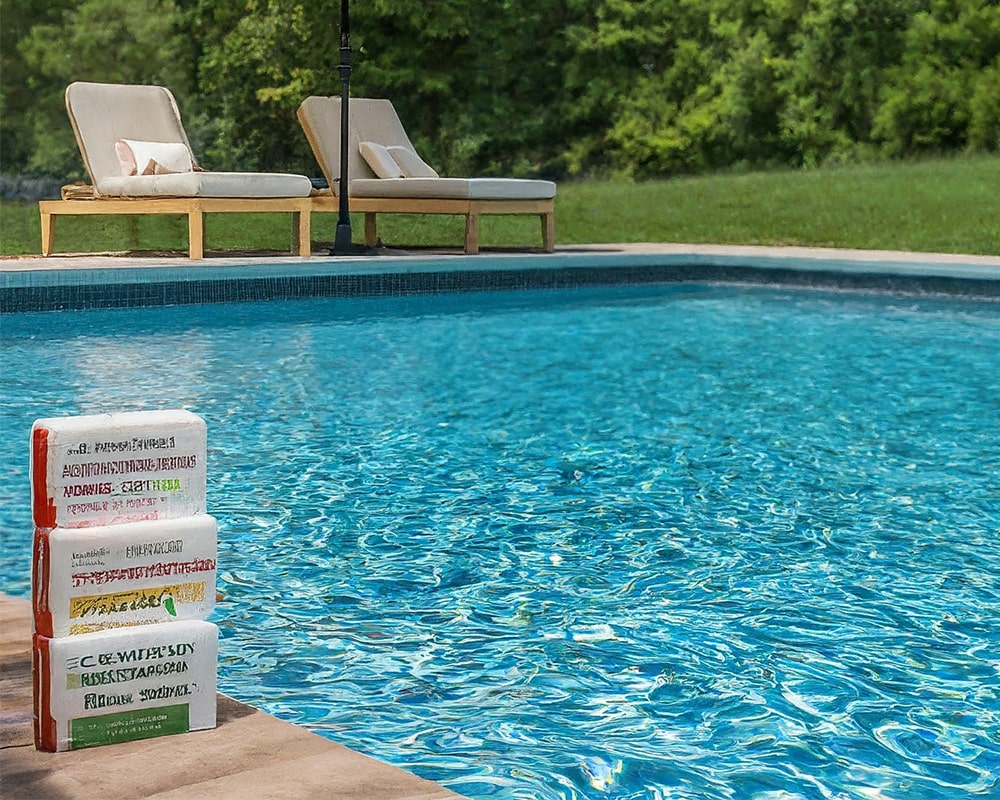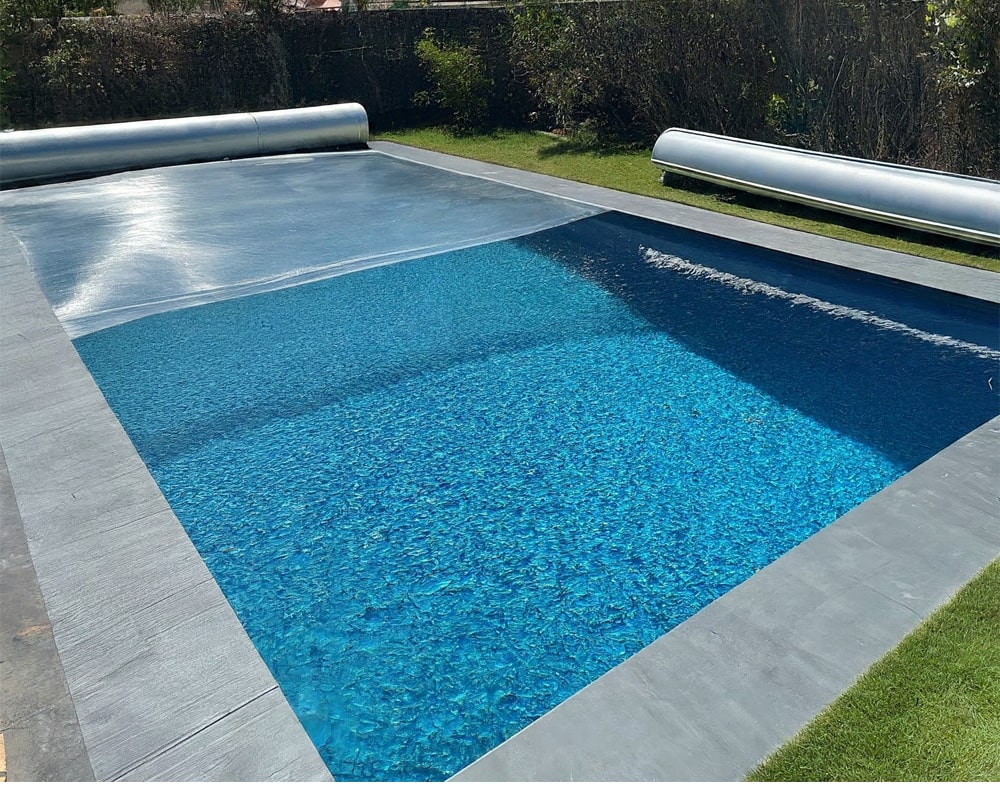Pool Maintenance Schedule
Posted: September 5, 2023Spending endless hours on maintenance probably wasn’t what you had in mind when you dreamed of owning a swimming pool. Keeping your pool clean and healthy isn’t that difficult, but sticking to a regular maintenance schedule makes it even easier.
Without maintenance, your pool can become unsanitary and unusable. It may force you to completely empty the water and start all over again.
Failure to maintain a pool properly can even lead to expensive damage. Don’t take a chance. Follow our guidelines for pool maintenance, and your backyard swimming pool will be the most popular place in the neighborhood.
Why Is a Schedule Important?
With all the responsibilities of homeownership you need to keep track of, remembering the date you last shocked the pool is nearly impossible unless you write it down. Whether you prefer a good old-fashioned handwritten schedule or an organized spreadsheet, creating and sticking to a schedule will help you:
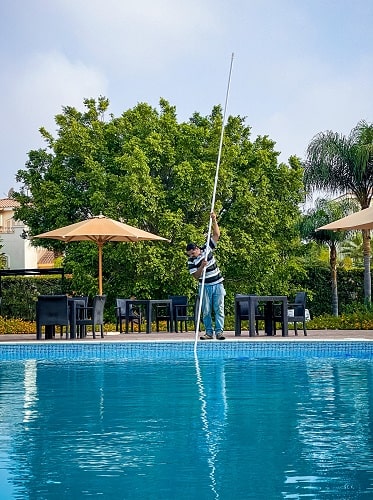
- Increase your pool’s lifespan
- Make sure nothing gets missed
- Save time on overall maintenance
- Save money on chemicals and other products
- Notice any problems early
When you keep to a schedule, you can avoid using tons of harsh chemicals and feel good about friends and family enjoying a day in your swimming pool. Let’s face it; a well-maintained pool is just way more fun to use.
Divide and Conquer
Staying on top of pool chores is easier if you divide them into weekly and monthly jobs. Don’t forget to date and check off chores when you complete them so you’ll know for certain they were done.
Weekly Schedule
It may seem like a lot to do, but the maintenance chores you need to do on a weekly basis should only take around an hour to complete. The type and size of pool you have directly impact the amount of time it takes to get the job done right.
Test the Water
Regular water testing is the key to good pool maintenance. Without testing, you are just guessing about the condition of the water and could end up making things worse.
Use a basic home testing kit to check your pool water 2-3 times a week. Pay close attention to the chlorine levels and adjust as needed to keep chlorine within the recommended range of 1–3 ppm.
Allowing the chlorine to fall below recommended levels can cause green or cloudy water. If the recommended levels are exceeded for an extended period, it could reduce the lifespan of pool components such as pump gaskets.
Other chemicals that may be needed on a weekly basis include shock and algaecide. Shock is used to preserve water quality. It also improves the efficiency of chlorine and helps prevent algae growth. Algaecide is used to help break down the outer layer of algae so that chlorine can work better.
Using both shock and algaecide allows you to use less chlorine without compromising water quality.
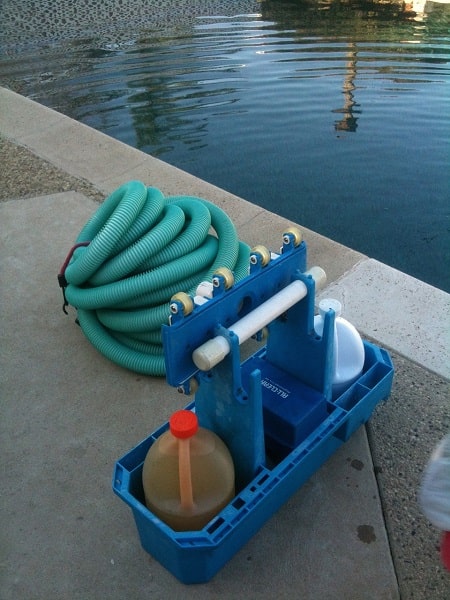
Brush the Surface
There are spots in every pool where the water doesn’t circulate as well as it should. These are often referred to as “dead spots” and are where pockets of algae are likely to form. Brushing the top of the pool helps break up dead spots and dispurses any pockets of algae so the chlorine can kill them.
Skim and Vacuum
Depending on your environment, skimming out leaves and other debris may be a daily job. Organic matter that is left in the pool to decompose can cause poor water quality. Check the skimmer basket and dump any debris.
Check Water Level
For the filtration system to run smoothly, your pool’s water level should cover about ½ to ⅔ of the skimmer hole. If the water is too low, the pump will suck air, and if it’s too high, the pump can’t provide adequate suction. In both cases, the filtration system will have a shorter lifespan.
Monthly Maintenance Tasks
With proper weekly care, there is very little left for monthly maintenance. In addition to testing pool water yourself, you should bring a water sample to Performance Pool and Spa for professional testing. We can analyze your water more accurately and prevent any water quality problems before they happen.
Don’t forget to closely examine your pool’s filtration mechanisms at least once a month. Check for leaks and wet spots around the filter, pump, or heater. Catching leaks early can prevent a potentially expensive problem.
Or You Can Leave It to the Pros
If your schedule doesn’t leave time for regular pool maintenance, Performance Pool and Spa can do it for you. We offer pool services and use only our own certified, insured, and fully trained technicians, not subcontractors. Call Performance Pool and Spa to learn more.

